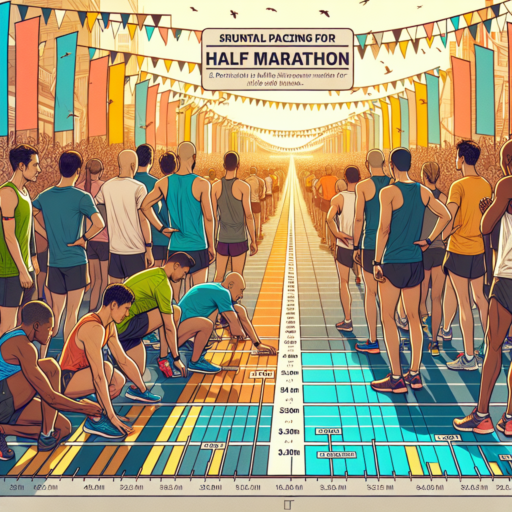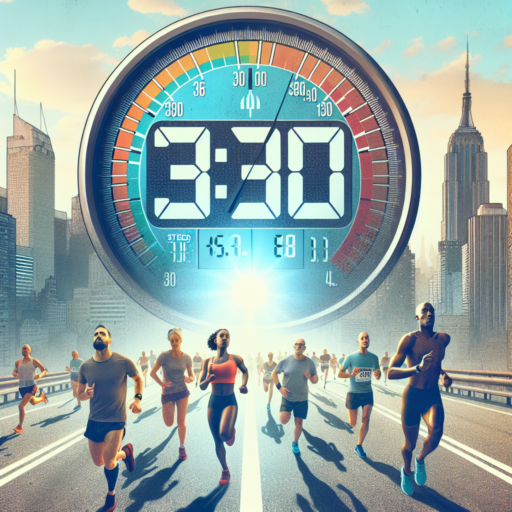What pace is a half marathon in 2 hours?
Aiming for a half marathon finish time of 2 hours is a common goal for many runners, from beginners looking to challenge themselves to seasoned athletes aiming for a personal best. Understanding the pace required to achieve this can help with training and pacing on race day.
Achieving the 2-Hour Mark
To complete a half marathon in exactly 2 hours, you need to maintain a consistent pace of approximately 9 minutes and 9 seconds per mile (5 minutes and 41 seconds per kilometer). This pace is a steady, moderate speed that requires a good blend of aerobic endurance and speed training.
Training Tips for Maintaining Pace
- Integrate interval training to improve speed.
- Include long, slow runs in your training regimen to build endurance.
- Practice pacing on your training runs to become familiar with the feel of the 9:09 pace.
Maintaining this pace for the entire 13.1 miles requires not only physical preparation but also strategic pacing. It is essential to avoid starting too fast, which can lead to burnout before reaching the halfway point. Equally, leaving too much energy for the latter stages could mean missing out on achieving your 2-hour goal. Balancing your effort across the whole course is key.
Can I run a half marathon if I can run 10k?
If you’re questioning whether transitioning from a 10k to a half marathon is a feasible goal, you’re not alone. Many runners find themselves at this crossroads, pondering if their current capability to conquer 10k (6.2 miles) paves the way for the more daunting 13.1 miles of a half marathon. The straightforward answer is yes, but it involves careful preparation and a step-up in training.
Understanding the Requirements of moving from a 10k to a half marathon is essential. The leap in distance is significant, effectively doubling your current race length. This means not only increasing your mileage but also incorporating different types of training runs, such as long slow distance, tempo runs, and perhaps even some speedwork, to ensure your body adapts to the additional demands.
A key strategy in this transition is to gradually increase your weekly mileage. Jumping too quickly in mileage can lead to injury, so a slow and steady approach is recommended. A typical advice is to not increase your weekly mileage by more than 10% compared to the previous week. This gradual increase helps your body adapt to longer distances without overwhelming it.
How fast to run marathon in 2 hours?
Running a marathon in under two hours is a feat that has captured the imagination of runners and spectators alike. The challenge demands an extraordinary level of speed, endurance, and strategy. To achieve this, a runner must maintain an average pace that is nothing short of world-class.
Maintaining World-Class Pace
To complete a marathon in the coveted two-hour timeframe, an athlete must sustain an average speed of approximately 4 minutes and 34 seconds per mile (around 2 minutes and 50 seconds per kilometer). This pace is significantly faster than what recreational runners achieve and requires a blend of natural talent, dedicated training, and optimal running conditions. It’s a pace that pushes the boundaries of human endurance and speed, highlighting not just physical capability but also mental resilience.
Training for the Challenge
Training to run at such an elite level involves meticulously planned workouts, with a focus on building both speed and endurance. Interval training, long runs, tempo runs, and strength training form the cornerstone of a runner’s regimen. Furthermore, nutrition, recovery, and injury prevention are equally crucial to ensure that the body can withstand the rigors of high-intensity training and perform optimally on race day. Adaptation to this intense level of preparation takes years and is punctuated by both setbacks and breakthroughs.
Breaking the Two-Hour Barrier
The quest to break the two-hour marathon barrier has not only been about individual achievement but also represents a monumental milestone in the world of athletics. Achieving such a time requires near-perfect conditions: a flat and fast course, favorable weather, and the strategic drafting behind pacemakers. Despite these stringent requirements, the pursuit of running a marathon in under two hours continues to inspire both elite athletes and those who run for the love of the sport, showcasing the unwavering human spirit to push beyond perceived limits.
No se han encontrado productos.
What is the average pace for a half marathon for a woman?
Understanding the average pace for a half marathon, especially for women, involves looking at various factors such as age, experience, and training. Generally speaking, the average half marathon finish time for women has been recorded around 2 hours and 19 minutes, according to recent marathon finish time data. This translates to an average pace of approximately 10 minutes and 40 seconds per mile. However, it’s important to note that these numbers can vary widely depending on the specifics of the runner and the race.
Fitness level and race conditions play a significant role in determining an individual’s pace. For instance, women who are more seasoned runners and who train consistently may find themselves completing a half marathon at a faster pace, sometimes even averaging closer to 9 minutes per mile. Conversely, those new to the distance might find a pace of 12 minutes per mile more manageable. Weather and course difficulty are also crucial factors that can affect finish times. Races held in cooler weather on flat courses tend to produce faster times compared to those in heat or with a lot of elevation changes.
Age group is another important aspect to consider when looking at average paces. Generally, women in the 30-40 age group tend to have faster average times, possibly due to a combination of higher fitness levels and more time available for training. That being said, every runner’s journey and pace improvement over time are highly individual. Many women find that with proper training, their pace can improve remarkably, regardless of when they start running.




